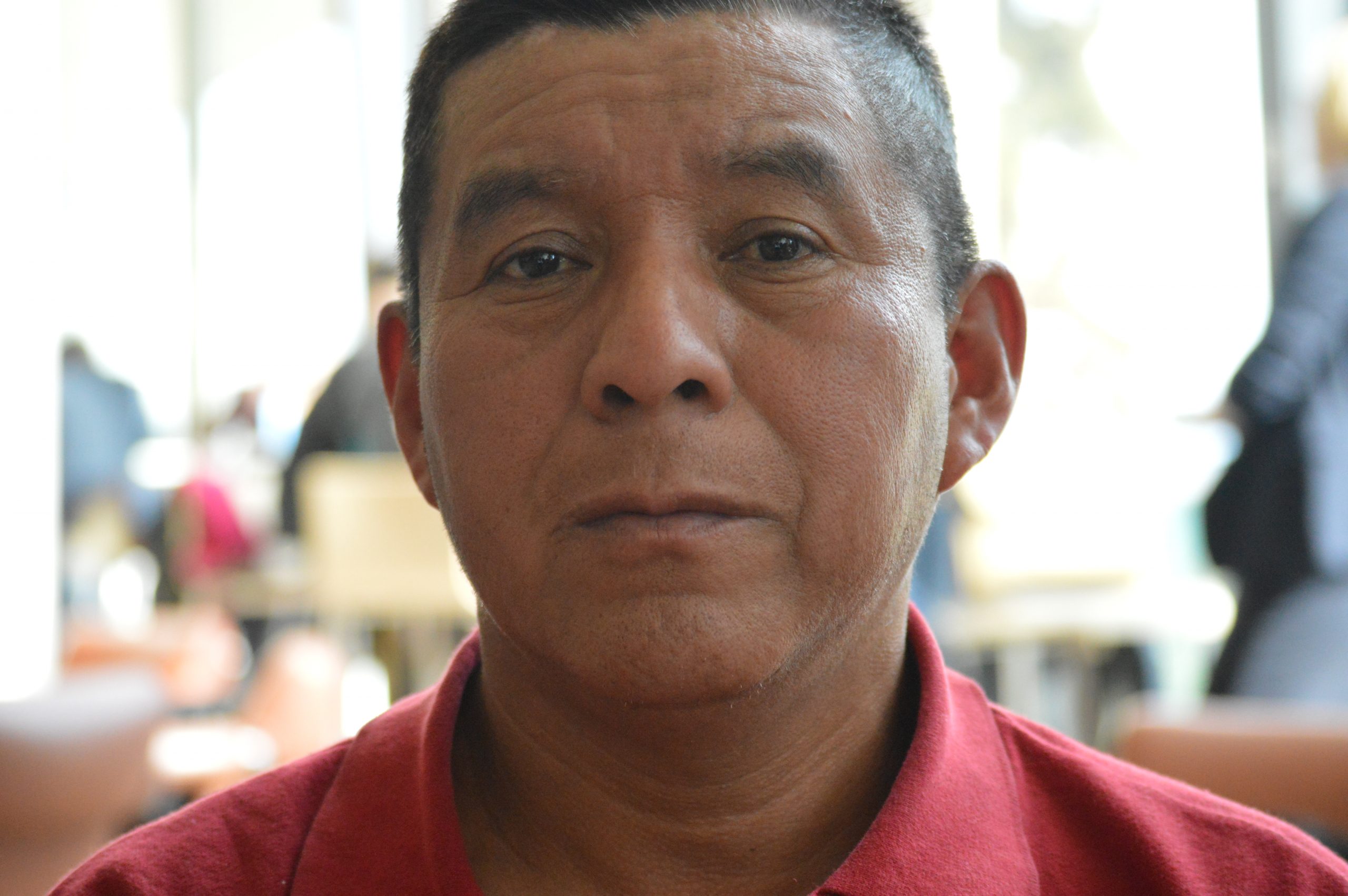
Human rights defender's story: Pedro Sica from Guatemala
Pedro Tzicá, a K'iche' defender from Guatemala, works tirelessly for indigenous peoples' rights to land and resources, facing government and corporate pressures.
Pedro Sica is K’iche’ from Chiul, a village located in the northern El Quiché department of Guatemala. Recently, the Guatemalan Government has come under criticism for the growing need to protect of human rights defenders, particularly those working on corporate accountability issues and land rights – including those defending the rights of indigenous peoples.
Sica participated in a side event at the UN Human Rights Council discussing risks facing, and the protection needs of, defenders working on economic, social and cutltural rights.
Sica works at the intersection of human and environmental rights, access to justice and development of indigenous peoples. He spoke to ISHR about his work as a human rights defender in Guatemala explaining how he perceives his work – not as a human rights defender, but in the collective, as a community defending their human rights and integrity. He spoke on behalf of the community.
‘Whenever there are human rights abuses, there is a need for the defence of human rights.’
In 2008 the Cunén community discovered that mining licenses approved by the Guatemalan Government accounted for 80% of the community’s territory divided among 7 different extractive industries. This was part of the Puebla-Panama Project (also known as the Mesoamerican Project), a multi-billion development plan to interconnect telecommunications, electrical grids and roads throughout Central America and Mexico. Each country developed a specific development plan, with Guatemala assuming the task of producing energy for the region.
‘To satisfy the corporations, the Government resorts to violence by tricking and repressing the communities that oppose the mega-projects.’
In response to the conflict between indigenous communities and extractive industries, the Consejo de Comunidades de Cunén (Council of the Cunén Communities, CCC) was formed. A community consultation was formed regarding the implementation of mega-projects in the area. In the consultation approximately 19,000 people from 71 communities voted against the project. The outcome of the consultation was ultimately provided to the Ministry of Energy and Mines, the Ministry of Environment and Natural Resources, the General Secretariat for Planning (SEGEPLAN) and Congress, requesting the total suspension of licenses. However, the response from the authorities was that they were not legally bound by the Cunén consultation.
Sica identified that the greatest risk faced by human rights defenders is the criminalisation of their work by the State. This includes being labelled ‘terrorists’ and ‘enemies of development’. Sica explained how he responds to such allegations:
‘We are not against development. Development needs to happen by the communities, for the communities and with the communities’ involvement.’
Sica spoke of the public statement made by the Ministry of Energy and Mines (MEM) in early February that he fears will put further pressure on communities. MEM stated that they would lift the moratorium on mining licenses and facilitate their approval – on the basis that development projects would reduce the poverty level in Guatemala. Amongst the measures to implement these projects, the Government has established military bases in the area. A military presence will only bring fear, threat and insecurity, said Sica.
‘Our goal is to protect ourselves, our lands and our lives. Our goal is for there to be respect for natural resources. That is why we demand respect for human rights, community rights and environmental rights.’
Working with Peace Brigades International, Sica has engaged with UN human rights mechanisms. In discussing this work, he mentions that the Guatemalan State has signed and ratified the Indigenous and Tribal Peoples Convention (also known as ILO-convention 169). Sica emphasises that the task now is for the Government to comply with the Convention.
‘Convention 169 has not been respected by the Government. The international community must pressure the State to comply with its international obligations. The State has failed to fully comply under the Convention to conduct prior consultation which must be carried out in good faith.’
